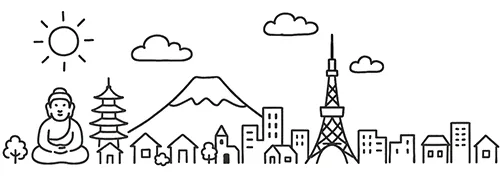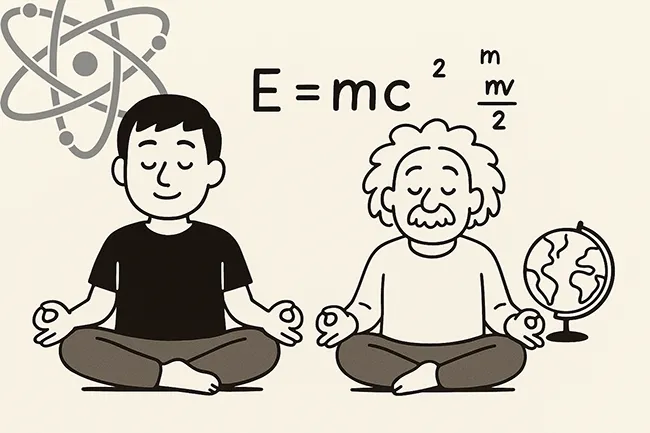The Reason Why I Got into the Spiritual World
Let me say this first.
I have always been, if anything, rather argumentative, theoretical, and rational.
I am the type who does not believe in anything without scientific evidence, and I love science fiction movies and space science, and my favorite movie of all is Interstellar.
It was about a year and a half ago that I began to think that maybe I should try believing in some invisible force.

The trigger was when I, who like space science, happened to pick up a very suspicious-looking book called The Truth of the Universe and read it.
The contents of the book, which were suspicious in every way, were about the universe and spirituality, but surprisingly, it was interesting and greatly caught my attention.
If you are thinking, “So, you’ve also become one of those people on that side,” wait a moment.
Please don’t pull away and read until the end. I am not trying to sell you expensive stones or seminars.
I just wanted to know—what was written, and the credibility of those suspicious people.
Later, as a result of me researching various things about the universe, religion, and spirituality, I found out that the book was, in the end, a shady omnibus-style book that was based on information such as Lawrence Spencer’s Alien Interview, the scientific “Double-Slit Experiment,” the Law of Attraction, quantum mechanics, and so on, and presented in the form of telepathic dialogues with aliens.
As the first book I happened to pick up, in a sense it might have been good. There are many books of that kind published in Japan.
There were parts I found convincing and parts that were hard to believe, but I became interested and devoured many books and articles of that kind.
Incidentally, not limited to that book, in the spiritual world there are some differences but generally the following ideas are proposed:
- The brain and body are not the self, but merely containers. Consciousness itself is the true self (the soul).
- Everything is energy. Thoughts are also energy. Vibrations of the same kind attract each other.
- There exists the Akashic Records, which contain all memories of the universe, and there are people who can access them.
- The concept of time does not exist. Past and future events happen simultaneously.
- Oneness: the source of everything is one. Ultimately, both oneself and others are connected to a single consciousness.
- Humans are not Earth’s original species but were created by reptilian aliens.
- Religions were created in order to make humans work conveniently.
- Earth is like a prison within the universe, and humans cannot leave it.
- Each person has multiple beings such as guardian spirits and guides.
- Humans have an aura.
- There also exists a higher-dimensional version of oneself.
- The world we are now seeing is an illusion.
And so on—it’s only a part, but even this much is fascinating, isn’t it? Some of it is derived from existing religions.
The fact that I originally didn’t have any particular faith might also be one of the reasons why I found it so interesting.
Things I Could Relate to from a Scientific Perspective
Time Does Not Exist
This is often said in the spiritual world, but it originally comes from Einstein’s theory, so for me there is no doubt about it.
It is also something you can understand by watching my favorite movie, Interstellar. I’ll skip the explanation, but the future and the past exist simultaneously.
The World We See is an Illusion
Recently, Elon Musk even said that there’s a 99% chance this world is virtual reality.
It’s a hard-to-believe phrase, but considering experiments such as the “double-slit experiment,” which is called the most beautiful experiment in human history, and the fact that in quantum mechanics all matter also has wave properties,
as well as the virtual spaces we are already creating at our current level, it seems very plausible even from a scientific perspective.
A Quote from Einstein
The renowned physicist Einstein left behind these words:
“Science without religion is lame, religion without science is blind.”
These words had a very strong impact on me.
Although Einstein did not believe in God, he could empathize with Spinoza’s idea that nature and the universe itself are God.

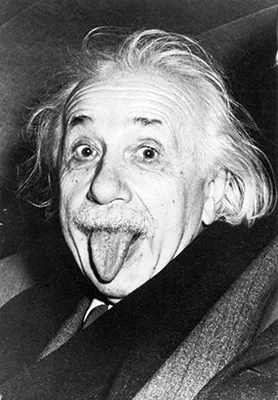
I strongly resonated with that too. When I pray or express gratitude to God, it is not to Jesus or Muhammad, but rather to nature, or the order of the universe—something like that, though I cannot fully explain it.
Religion and science are surprisingly close to each other, and if you pursue them deeply, it seems like they reach the same goal.
The Afterlife
The afterlife is also a field that greatly interests me. In the spiritual community, there is no heaven or hell in the afterlife.
As seen in other religions as well, roughly speaking, a soul that has finished its time in this world goes through a process of learning and is then reborn into something else.
Among the books I read, Michael Newton’s writing about the afterlife was particularly fascinating.
And the Disney-Pixar movie Soul aligns perfectly with what he described.

For those who haven’t seen it yet, I highly recommend it. It’s a wonderful movie that can make ordinary everyday life feel magical.
Plants, animals, and even the stars follow cycles. Maybe the universe does as well. Surely, humans are not the exception.
Prayer
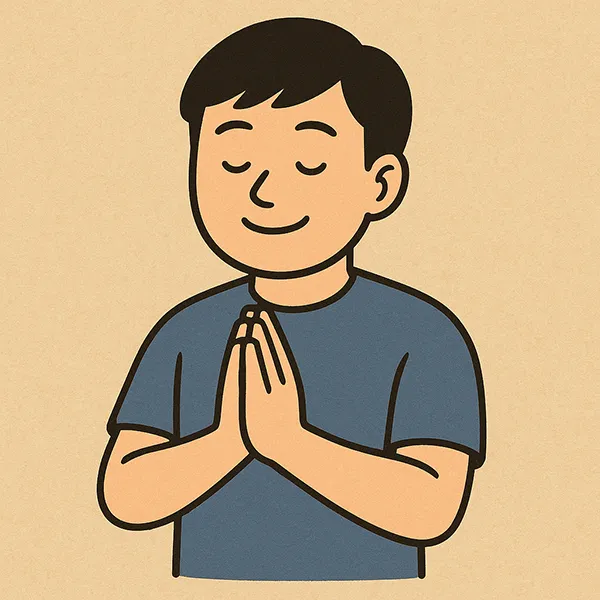
Everyone has prayed at least once in their life, right?
There is a Japanese professor who conducted scientific experiments on the effects of prayer.
A blog summarized the results of these experiments (please translate it into your native language if necessary).
They line up cucumbers, offer prayers, and then measure the gas they emit. I hope that makes sense.
The results were very interesting. I didn’t expect the effects of prayer to be visible.
Indeed, if something had no effect, it wouldn’t have been revered for thousands of years.
Meditation
Wanting to try connecting to the so-called Akashic Records, I decided to start meditating.
Everyone wants to have some kind of special ability, right? In the end, I haven’t been able to connect to the Akashic Records, but there were still benefits.
First, I began falling asleep more easily than before. This was because I could clear my mind.
For someone like me, who tends to breathe shallowly, deep breathing seemed to be very important for my body. I also felt calmer, and my stress appeared to be reduced.

I looked up methods online and tried them. At first, I sat cross-legged, but now I find it more comfortable to sit in a chair.
Meditation itself is considered beneficial from a scientific standpoint, and it is probably already quite common in countries like the U.S., right?
When I told my wife that I was starting meditation, she laughed at me, but in Japan, this is still generally the case.
Spiritual or highly religious practices are often still met with suspicion, ridicule, or caution in Japan.
For people in other parts of the world who generally have some kind of faith, this probably doesn’t seem strange,
but Japanese people are somewhat unfamiliar with the spiritual world and tend to have some resistance toward it.
Readings, Channeling, Seminars, and Merchandise
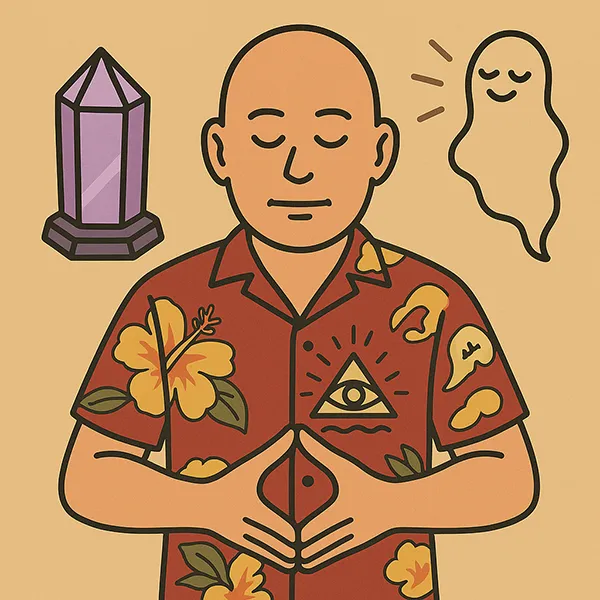
In the spiritual world, there are people known as channelers or Akashic readers, primarily originating from the West.
There are also many of them in Japan, selling books for personal fortune advice or Akashic readings, and holding seminars.
Honestly, I am curious about whether these things are effective, but the prices are relatively high, so I haven’t tried them myself yet.
Many of these practitioners claim to be connected to the universe. While I initially had some doubts or frustrations about turning this into a business, I came to think that it’s not a problem for someone to earn money by healing, reading, or guiding people—just as a musician earns money by entertaining people with songs.
After all, my own interest in spirituality began with just one book.
However, scams do exist in this field, which can be troublesome. With music, you can simply choose not to listen.
Many people who fall victim to scams are often in a vulnerable state, experiencing some form of anxiety or worry.
As for me, I live a fairly carefree life and don’t have major anxieties or concerns, so I have no fear of being exploited by fraudsters.
Chance? Or Inevitable? The Pull of Attraction
I like singer-songwriter Sia and have been a fan since she was the vocalist for Zero 7.
I also like Pharrell Williams and listened to his music often. And among Japanese singers, I grew to like Fujii Kaze.
As I mentioned in a previous article, I’m currently practicing with his official scores as well.
What these artists have in common is their spirituality. From interviews and articles, it seems that all of them have a spiritual side.
Learning this later surprised me and somehow made me happy. Could this be the power of attraction? I wondered.
Perhaps it was inevitable that I would come to love their music.
Pharrell’s “Happy” is exactly the kind of spiritual song I adore. And when I watched the film Music, created by Sia, emotions overflowed and I ended up crying loudly next to my wife.
It’s an amazing film, so I highly recommend it to anyone who hasn’t seen it yet.

In any case, it seems that many artists share this kind of spiritual side.
How Small We Are
As you all know, we are small. “Small” isn’t even enough to describe how small we really are.
And the universe is vast. “Vast” isn’t enough to describe how immense it truly is.
Eames’ film: Powers of Ten
It clearly shows our size.
How Little We Know
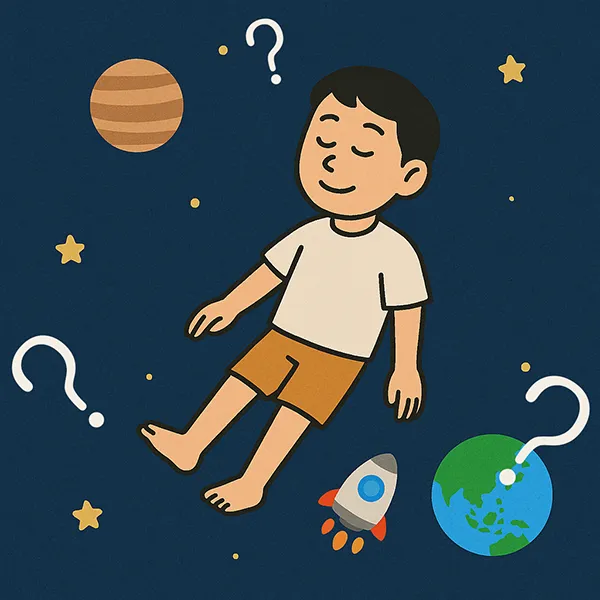
Approximate percentages of what we understand:
About humans: less than 50%
About Earth: 30–50%
About the universe: less than 1% (at best 5%)
We know far too little… not even about our own bodies.
This was the ultimate reason I began to believe in invisible things and forces.
In a world where so much remains unexplained, it seems almost impossible to live believing only in what we can see.
For me, the fact that we “don’t know” became a kind of scientific justification.
99% “The Unknown,” or 1% “Evidence.” Which would you choose to believe?
Thank you for reading!
If you enjoy my posts, your support really motivates me ☕
